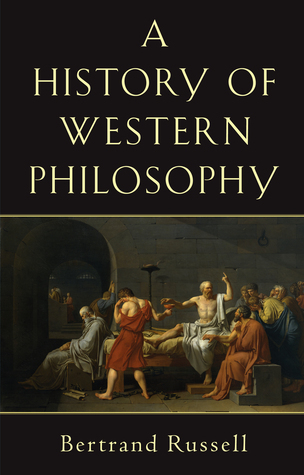
A History of Western Philosophy. Vol. IV/VI
Book Description
Ancient Greece to the rise of modern thought—the battle of ideas unfolds in 'A History of Western Philosophy. Vol. IV/VI' by Bertrand Russell. Witness the clash of titans: Plato’s idealism, Aristotle's empiricism, and Descartes’ radical doubt ignite a revolution in human understanding. Each philosopher wrestles with the essence of knowledge, morality, and existence, shaping the very framework of Western civilization. Their legacies fuel passions, provoke dissent, and challenge our deepest beliefs. Can the complexities of thought lead to a greater truth, or do they merely obscure it? Discover which ideas will prevail in this intellectual saga. What does it truly mean to think?
Quick Book Summary
"A History of Western Philosophy. Vol. IV/VI" by Bertrand Russell traces the dramatic evolution of Western thought, from the flowering of Greek philosophy through the dawn of the modern era. Russell vividly captures the tensions and breakthroughs as thinkers like Plato, Aristotle, and Descartes grappled with core questions about reality, knowledge, ethics, and existence. Their intellectual struggles led to new frameworks for understanding the world, shaping not only philosophy but also science, politics, and culture. Russell's narrative spotlights the fervent debates and shifting perspectives that fueled the progress of ideas. Ultimately, this volume reveals how the legacy of these philosophers continues to inspire, challenge, and provoke our search for meaning and truth in the modern world.
Summary of Key Ideas
Table of Contents
The evolution of knowledge and reality
The origins of Western thought are rooted in ancient Greece, where philosophers like Plato and Aristotle laid the groundwork for virtually every discipline of modern inquiry. Plato’s theory of Forms proposed that ultimate reality lies beyond the material world, shaping debates about the nature of universals, ethics, and the soul. Aristotle countered with a pragmatic, empirical approach that prioritized observation and concrete particulars, influencing the scientific methods that would later emerge. Their dialectic established enduring questions about what can be known and how certainty can be achieved.
The debate over morality and the good life
Throughout successive centuries, philosophers refined and transformed these foundational questions. The rise of Stoicism, Epicureanism, and Skepticism reflected alternative approaches to knowledge and living the good life. Philosophers confronted the problem of how humans could understand and shape their world, developing systems to explain causality, fate, and free will. These debates not only shed light on personal virtue but also deeply influenced Western concepts of law, justice, and governance.
Revolutions in scientific and philosophical method
The medieval era fused ancient philosophy with Christian theology, seeking to reconcile reason and faith. Thinkers like Thomas Aquinas synthesized Aristotle's teachings with religious doctrine, cementing the authority of reasoned argument in theological disputes. Innovations in logic, metaphysics, and ethics during this era provided a critical bridge between antiquity and the modern spirit of inquiry, though perennial tensions between revelation and rationality persisted.
The enduring clash between idealism and empiricism
The dawn of modernity unleashed a revolution in method, typified by René Descartes. His method of radical doubt—questioning all assumptions except the certainty of one’s own existence—upended previous frameworks. This skepticism laid the foundation for science and rational inquiry, privileging evidence and clarity. The battle between idealists (who believe in the primacy of mind or spirit) and empiricists (who trust sensory experience) reached new intensity, transforming how knowledge and reality are conceived.
The legacy and relevance of ancient thought
Russell closes by exploring the enduring influence of these philosophical giants. Their struggles with profound questions—what is real, what can be known, how should we live—continue to challenge and inspire. The evolution of Western thought, as narrated in this volume, is shown to be less a steady march than a passionate dialogue filled with dissent, brilliance, and ongoing relevance.
Download This Summary
Get a free PDF of this summary instantly — no email required.





